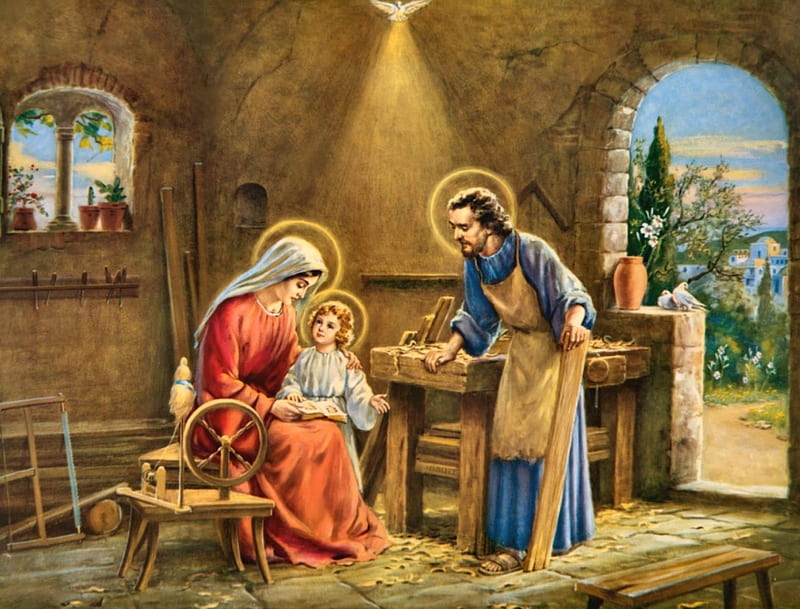
Some might feel that this feast sets too high an ideal for families, if the homilist highlights the virtues of the Holy Family, without also showing that they had to face many issues not unlinked those of our own households. Even though we call them the Holy Family that does not mean they never had problems to face, as every family must. Just as each follower of Jesus has a cross to carry, so also the holy family had to experience the cross in their shared life. Today’s Gospel from St Matthew shows how the little family had to flee as refugees to Egypt because the child Jesus’ life was in danger from king Herod, in much the same way as refugees from war-torn countries have to flee to save their lives. This prompts us to be more aware of, and show more empathy towards, those refugees in our own day who seek a safer life among us than they had in the countries from which they fled.
St Luke has another story to illustrate what trials were faced by Mary and Joseph, in trying to understand the development of Jesus as a young person. When he was twelve, they were shocked to lose him for three days and then had to deal with the unsatisfactory explanation that he “had to be about his Father’s business.” Still, he returned with them to Nazareth and was subject to them, in the quiet rhythm of family life in their village. We do not hear of Joseph any more after that so we presume that he had died before Jesus began his public ministry.
Then too, the public life of Jesus must have taken its toll on Mary. In the Temple when he was an infant, old Simeon had predicted that a sword of sorrow would pierce Mary’s soul. How she must have been pained to hear his enemies say that Jesus was a glutton and a drunkard, a friend of tax-collectors and sinners, and at the end, when Mary watched her son die in public disgrace, on the cross.
What sustained the family of Nazareth through all of these trials and crosses? What holds families together in times of difficulty is love and trust.
A barrister, a busy career woman, was living just ten kilometers from her old, widowed father. But months often passed between her visits to him; and when her father texted to ask when she might bring his grandchildren to visit him, she detailed lots of reasons that kept her too busy to see him, court schedules, meetings, new clients, research, etc. Her father frowned and then asked, ‘When I die, will you come to my funeral?’ The daughter was indignant. “Dad, how can you ask me that? Of course, I’ll be there!” He smiled and said, “Ah! Then please forget my funeral and come to visit me now. I need you now more than I will then.” Message understood – and his daughter began to visit him regularly after that.